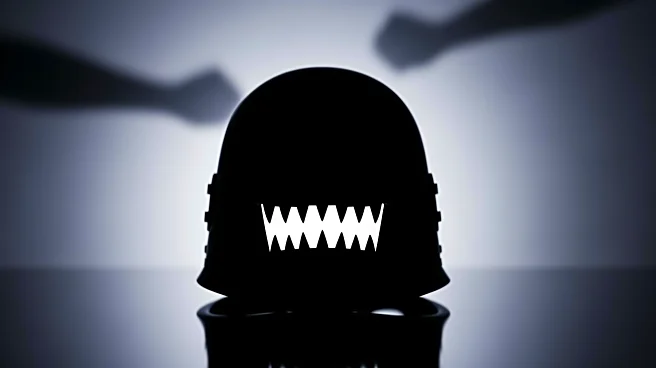What's Happening?
A federal lawsuit has been filed by Sam O'Hara, a Washington resident, against the District of Columbia, alleging that his constitutional rights were violated when he was detained by police. O'Hara claims he was following an Ohio National Guard patrol
while playing 'The Imperial March' from 'Star Wars' on his phone as a form of peaceful protest against President Trump's deployment of Guard members in Washington, D.C. The lawsuit, supported by the American Civil Liberties Union, accuses the officers of violating O'Hara's First Amendment rights to free speech and his Fourth Amendment rights against unreasonable seizures. O'Hara was reportedly handcuffed for 15 to 20 minutes before being released without charges. The incident occurred on September 11, and O'Hara is seeking compensatory and punitive damages.
Why It's Important?
This lawsuit highlights ongoing tensions between residents of Washington, D.C., and federal authorities following President Trump's deployment of National Guard troops in the city. The case underscores concerns about the militarization of civilian spaces and the potential infringement on civil liberties. The outcome of this lawsuit could have significant implications for how protests are policed and the extent to which individuals can express dissent in public spaces. It also raises questions about the balance between maintaining public order and respecting constitutional rights, particularly in a politically charged environment.
What's Next?
The lawsuit could lead to a legal examination of the actions taken by the police and National Guard during the incident. If successful, it may result in changes to how protests are managed in Washington, D.C., and potentially influence broader national policies regarding the deployment of military forces in civilian areas. The case may also prompt discussions among lawmakers and civil rights organizations about the protection of free speech and the right to protest.















